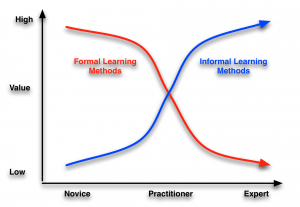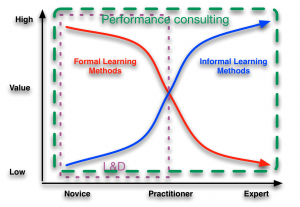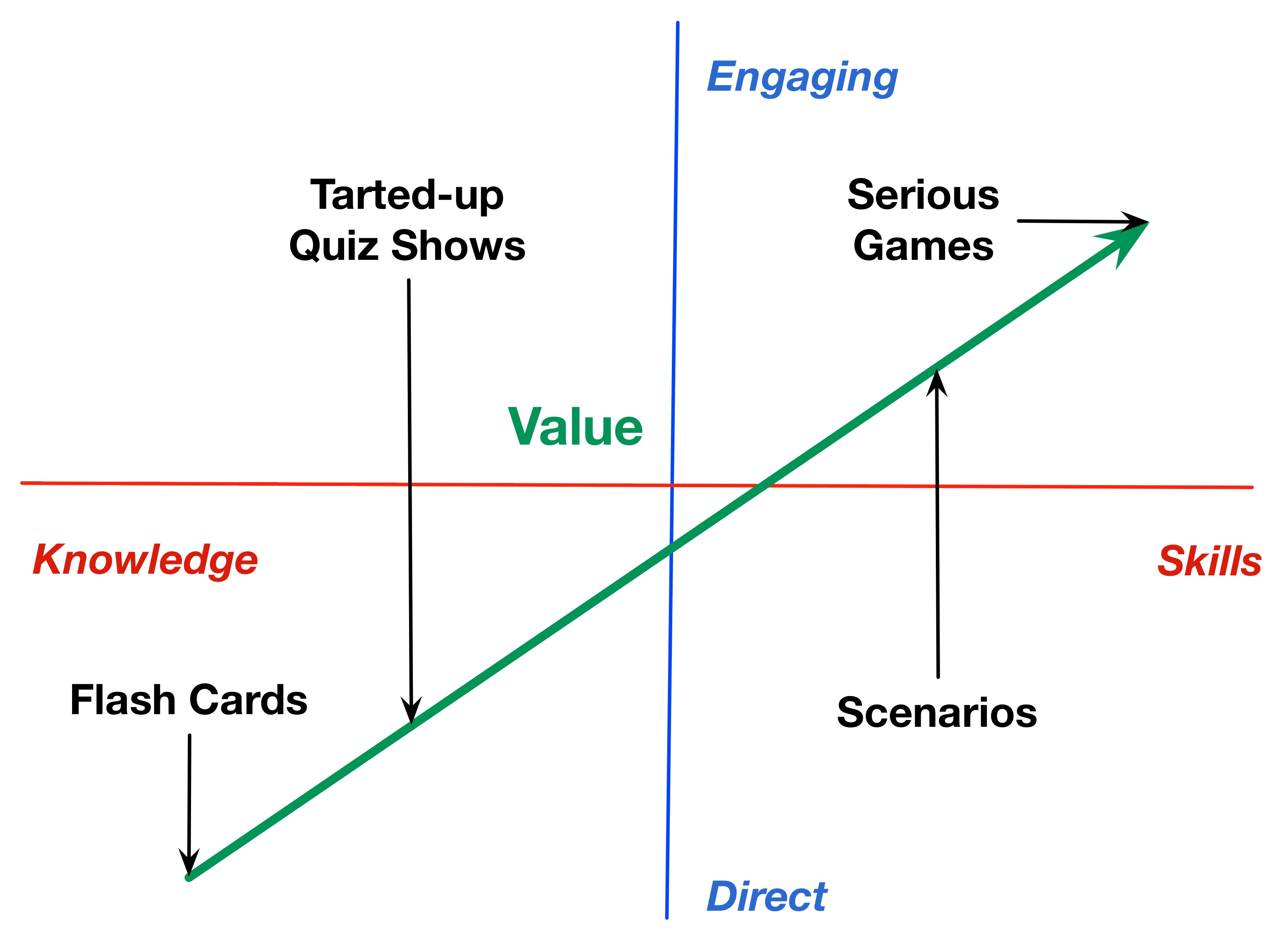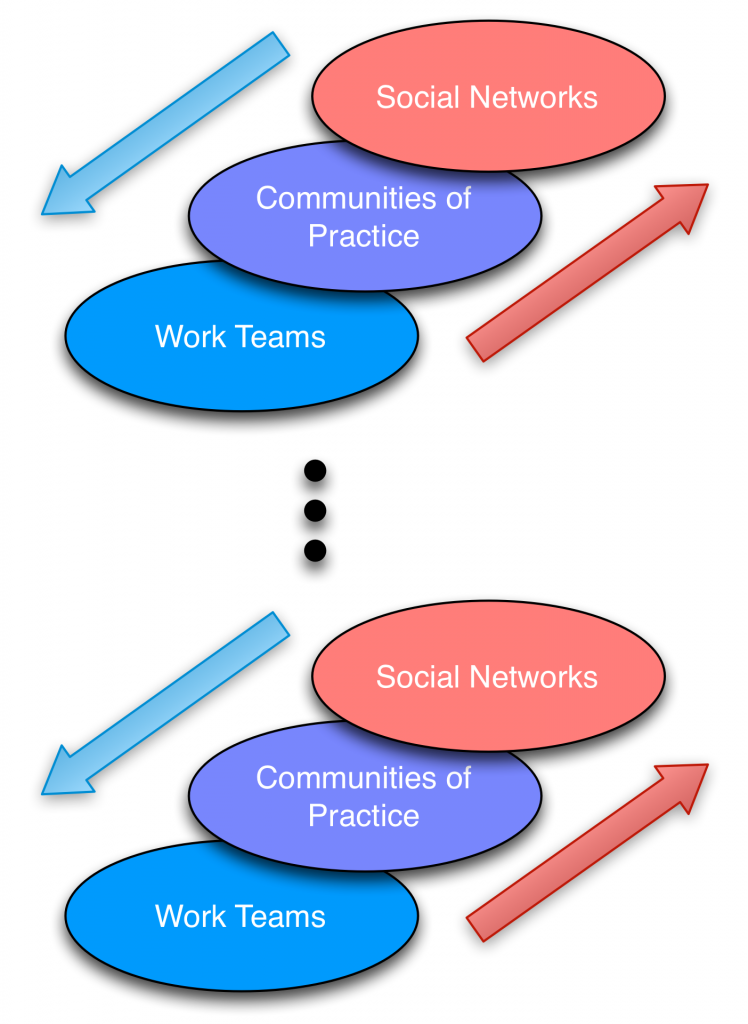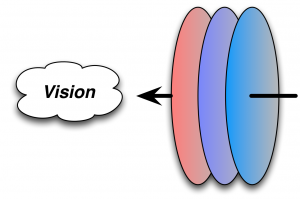Harold Jarche reviews Marina Gorbis’ new book The Nature of the Future, finding value in it. I was intrigued by one comment which I thought was relevant to organizations. It has to do with the nature of thinking.
In it, this quote struck a nerve: “Gorbis identifies unique human skills”. The list of them intrigued me:
- Sensemaking
- Social and emotional intelligence
- Novel and adaptive thinking
- Moral and ethical reasoning
While all are intriguing and important, the first and third really struck me. When I talk about digital technology (which I do a lot :), I mention how it perfectly augments our cognitive architecture. Our brains are pattern-matchers and meaning extractors. They’re really good at seeing insights. And they’re really bad at rote memory, and complex calculations.
Digital technology is exactly the reverse: it’s great at remembering rote information and in doing complex calculations. It’s extremely hard to get computers to do good pattern-matching or meaning making.
For the purposes of achieving meaningful outcomes, coupling our capabilities with digital technology makes a lot of sense. That’s why mobile makes so much sense: it decouples that complementary capability from the desktop, and untethers our outboard brain.
From an organizational point of view, you want to be empowering your people with digital augmentation. From a societal point of view, you want to have people doing meaningful tasks where they tap into human capability, and not doing rote tasks. They’re going to be bad at it! And, you can infer, it’s also the case that you’re going to want education to focus on how to do problem-solving and using digital technology as an augment, not on doing rote things and memory tasks. Ahem.
